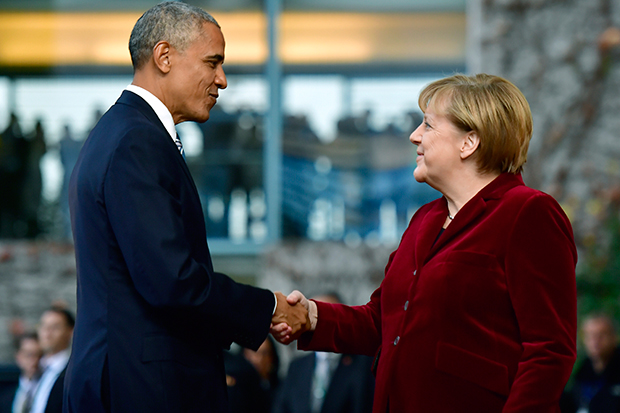So, Angela Merkel has ignored the Spectator’s advice and has decided to run for a fourth term as German Chancellor in next year’s federal elections. If she wins and serves a full term, she’ll overtake Helmut Kohl as the longest serving German Chancellor since Bismarck. What does Merkel’s bid for four more years mean for Germany – and Britain? And after this year’s dreadful regional election results, how on earth has she survived to fight another day?
Last month Merkel looked like a busted flush, an electoral liability. Her decision to open Germany’s borders to over a million fleeing refugees led to a surge in support for Alternative fur Deutschland, Germany’s fledgling anti-immigration party. There was even talk that the CSU, the CDU’s Bavarian sister party, might field a rival candidate for the Chancellorship if she ran again. So why does she now look like a much better bet than she did a month ago? The answer to that question is Donald Trump.
Trump has transformed the political landscape in Germany, even more than he has in Britain. While some Brexiteers have seen his triumph as validation of the Brexit vote, in Germany the only politician who stands to gain from his shock victory is that arch-europhile, Angela Merkel.

